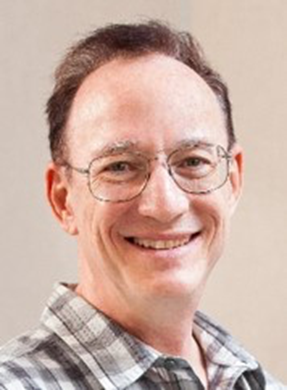-
-
Profile
Steve Granick is Founding Director of the Center for Soft and Living Matter. He is a member of the U.S. National Academy of Sciences and of the American Academy of Arts and Sciences. Among his other major awards are APS Fellow (1992), Paris-Sciences Medal (2002), APS national Polymer Physics Prize (2009), NSF Special Creativity Award (2012), and ACS national Colloid and Surface Chemistry Prize (2013). He served as Chair of the DOE Council on Materials Panel on Polymers at Interfaces (2002) and Chair of the APS Division of Polymer Physics (2006). He holds and has held Honorary or Visiting Positions at numerous universities in Europe and Asia.
Before joining the IBS (Institute for Basic Science), Granick spent 30 years at the University of Illinois at Urbana-Champaign (USA), most recently as the Racheff Chair of Materials Science and Engineering, Professor of Chemistry, Professor of Chemical and Biomolecular Engineering, and Professor of Physics and Biophysics.
His education was at Princeton University (B.A. 1978) and the University of Wisconsin (Ph.D. 1982). His doctoral study was with J.D. Ferry, the most prominent polymer scientist of his generation. His postdoctoral study was with P.-G. de Gennes (Nobel Prize, 1991).
-
Group achievements
The Granick group has published more than 300 peer-reviewed publications resulting in more than 18,000 citations. For information about H-index and other publication data, please go to:
https://scholar.google.co.kr/citations?user=iCi0XVUAAAAJ&hl=en .
Young scientists are the most important product of this research group, even more important than publications. Granick group alumni are widely distributed in academia, industry, and national laboratories.
Faculty alumni in Korea:
Kipom Kim, Senior Scientist, Korean Institute for Brain Research
Sangmin Jeong, Professor, Postech
Sung Chul Bae, Asst. Professor, UNIST
Yoon-Kyoung Cho, Assoc. Professor, UNIST
Hyungjung Lee, Professor, Kookmin University
Faculty alumni in other countries:
Bo Wang, Asst. Professor, Stanford University
Qian Chen, Asst. Professor, Univ. of Illinois at Urbana-Champaign
Shan Jiang, Asst. Professor, Iowa State University
Nobuhiro Yanai, Assoc. Professor, Kyushu University
Jiang Zhao, Professor, Chinese Academy of Sciences Beijing
Gȕnter Reiter, Professor, Freiburg University, Germany
Yan Yu, Asst. Professor, Indiana University
Minsu Kim, Asst. Professor, Emory University
Janet Wong, Senior Lecturer, Imperial College London
Liangfang Zhang, Professor, Univ. California San Diego (UCSD)
Elaine Zhu, Professor, Wayne State University
Ashis Mukhopadhyay, Professor, Wayne State University
Lenore Dai, Professor, Arizona State University
Svetlana Sukhishvili, Professor, Texas A&M University
Marina Ruths, Professor, University of Massachusetts-Lowell
Ali Dhinojwala, Professor, University of Akron
-
Group research
The goal of this research group is to understand fundamental materials processes and to develop new ones. Work is in progress in the following areas:
- self-assembly of novel, specially-designed colloidal particles
- phospholipid assemblies and nanoparticle-membrane dialogue
- polymers and related materials
- active matter and living cells
- properties of single molecules especially macromolecular
We welcome new ideas introduced by new group members. Group members come from a variety of scientific disciplines, among them chemistry, physics, biology, materials science, chemical engineering, bioengineering, and mechanical engineering. Students and postdocs gain broad training and have many options of what to do after they leave for permanent jobs.
Much of our research is done with unique instruments available nowhere else, especially a combination of spectroscopy, optical imaging, chemistry, and nanomechanics. This enables us to contribute to a broad range of research problems not only with implications in chemical/physical sciences but also applications from energy and environment to health.
-
Profile
로케이션영역
- People
- Faculty
주변영역
People


